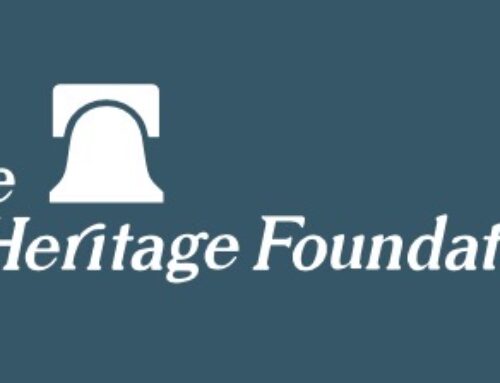Written Testimony of Lori Roman, President, American Constitutional Rights Union Action
Ohio House of Representatives, Committee on State and Local Government
House Bill 680
June 3, 2020
Thank you for this opportunity to weigh in on the important subject of voting integrity. At American Constitutional Rights Union we have worked on this issue every day for many years and we can appreciate the complexities that must be dealt with in these times.
Our Board Member J. Kenneth Blackwell is the former Secretary of State of Ohio, Mayor of Cincinnati, and U.S. Ambassador to the United Nations Human Rights Commission. He regrets that he could not be with you today, but this testimony reflects the work of ACRU Action and his work and writing as a domestic and international election expert.
While many insist that election fraud is non-existent, ACRU and ACRU Action have been tracking and fighting election fraud for many years. ACRU has sued counties that refuse to clean up their voter rolls and ACRU sued Broward County, Florida in 2016 after they refused to remove any deceased or relocated citizens for two solid years. ACRU is known for its Election Integrity Bulletin that is sent regularly to legislators, legislative staff, and election officials. This newsletter exposes voting integrity challenges on a bi-weekly basis.
Mail-in ballots should be tightly controlled and have extremely limited use. They have been shown time and time again to be difficult for officials to manage and convenient vehicles for vote fraud. Recent examples, such as in Harris County, Texas (https://thetexan.news/alleged-ballot-harvesting-in-harris-county-prompts-investigation-request-by-secretary-of-state/) and the recent indictment of a U.S. Postal worker in West Virginia for tampering with mail-in ballots (https://www.breitbart.com/politics/2020/05/26/usps-mail-carrier-charged-with-fraud-after-allegedly-tampering-with-vote-by-mail-requests/) are just the tip of the iceberg.
Mail-in voting also makes vote fraud via double voting much easier. ACRU Senior Fellow and Heritage Foundation Senior Legal Fellow Hans von Spakovsky recently exposed incidents of double voting (https://www.heritage.org/election-integrity/commentary/the-double-voting-problem) in an op ed:
“Charles Eugene Cartier Jr. of New Hampshire just pled guilty to double voting in the 2016 general election, voting first in New Hampshire and then again in neighboring Massachusetts. He was the fourth person found guilty of duplicate voting in New Hampshire just in the last year…Ohio Secretary of State Frank LaRose has referred 18 cases of duplicate voting in his state to appropriate prosecutors—all discovered through the state’s participation in the Electronic Registration Information Center.”
ACRU was so concerned about fraudulent ballot harvesting in our nation’s nursing homes that we started a new initiative this year www.protectelderlyvotes.org to protect vulnerable citizens from those who wish to defraud them of their votes by filling out their absentee ballots.
There is an unwise movement to abandon in-person voting. Some are exploiting the pandemic to instill fear in our electoral process, forcing a solution for a problem that does not exist — namely, that people will not be able to get to the polls because of the coronavirus. This is a false assumption, as other countries have learned in similar crises. And it was not the case in America in 1918 during the outbreak of Spanish Flu pandemic.
The partisan motives behind these recent electoral “reform” proposals, and the opportunity for vote fraud and coercion they present are reason enough to oppose them. But there is another glaring issue that is worth pointing out–contrary to their proponents’ efforts to present them as a necessary concession to the coronavirus pandemic, the new voting procedures are clearly unnecessary from a public health perspective. If we can go to the grocery store, we can vote in person.
The United States has the world’s most mature and developed democratic system and an extraordinary amount of resources to tackle the problems the coronavirus creates. This pandemic is not uncharted ground. The bipartisan organization of which J. Kenneth Blackwell is also a board member, the International Foundation for Electoral Systems (IFES), has been involved in similar situations before around the globe. While IFES is not involved in domestic elections, it is recognized internationally as a thought leader in election administration.
In 2014, as the Ebola virus raged in West Africa, the country of Liberia was slated to hold a crucial election. Some argued that in-person voting should be suspended, but that could have thrown the legitimacy of the results into question due to the mere possibility of widespread fraud. Instead, IFES was able to help develop protocols for voters and poll workers that kept them safe while allowing Liberians to participate in a free, fair, and in-person election.
Maintaining electoral continuity is important to protecting voting integrity. If the rules of the game change at the last minute — especially in a way that even seems to benefit one political party over its opposition — democracy itself is cheapened and delegitimized.
If Liberia was able to safely hold an in-person election amid an Ebola outbreak, there is no reason we cannot do so here in the United States in the wake of this pandemic. It will take planning, resources, and carefully developed protocols, but adhering to our existing set of electoral rules is well worth the effort.
America has the resources and institutional knowledge to make this work. There is no reason for American legislators to run scared. It is time to renew our commitment to free, fair, and secure in-person elections.






